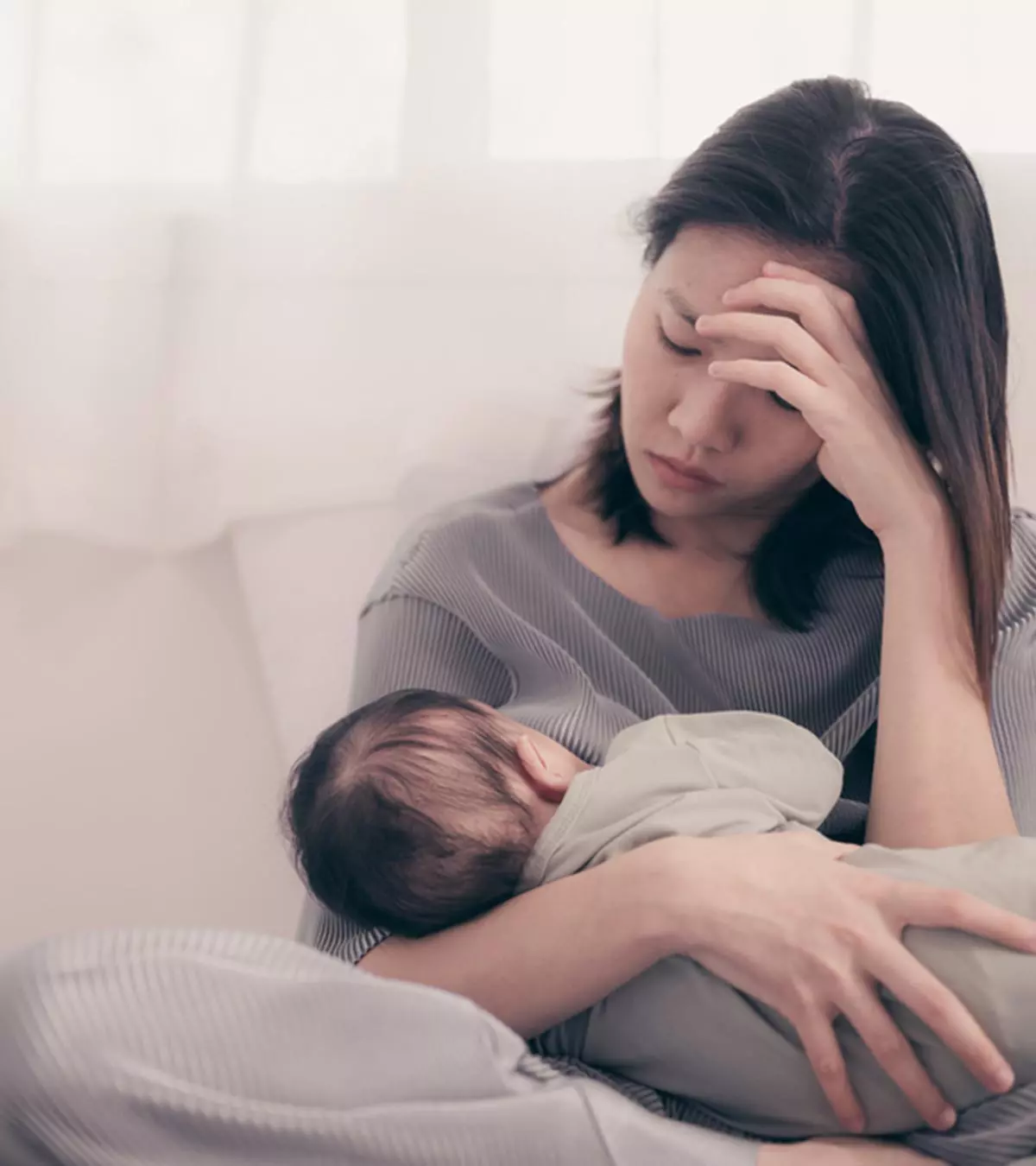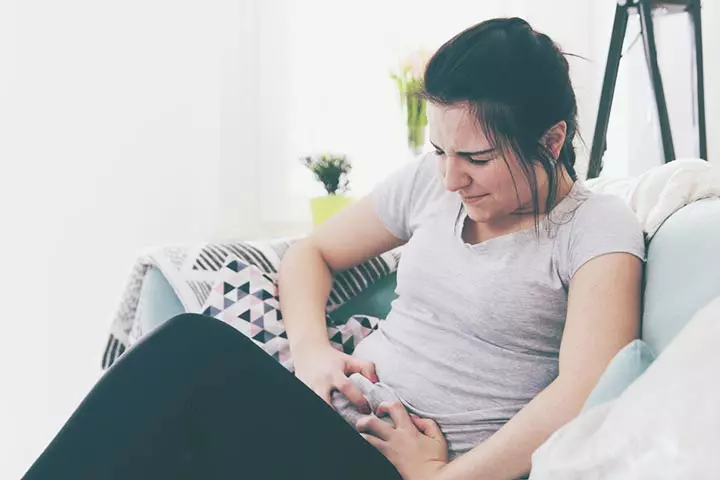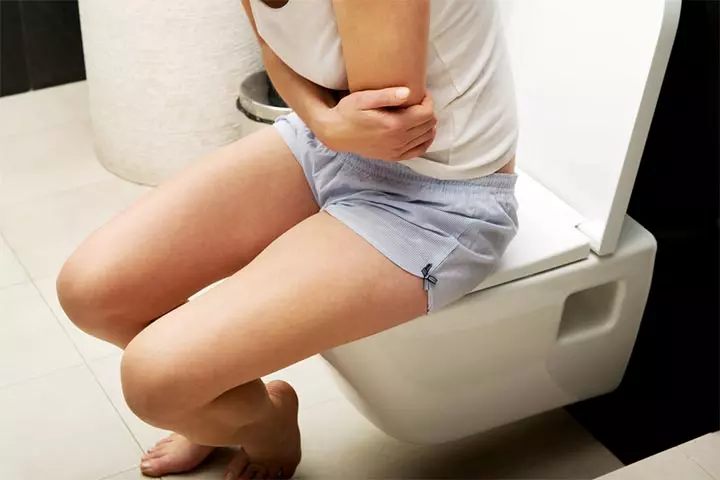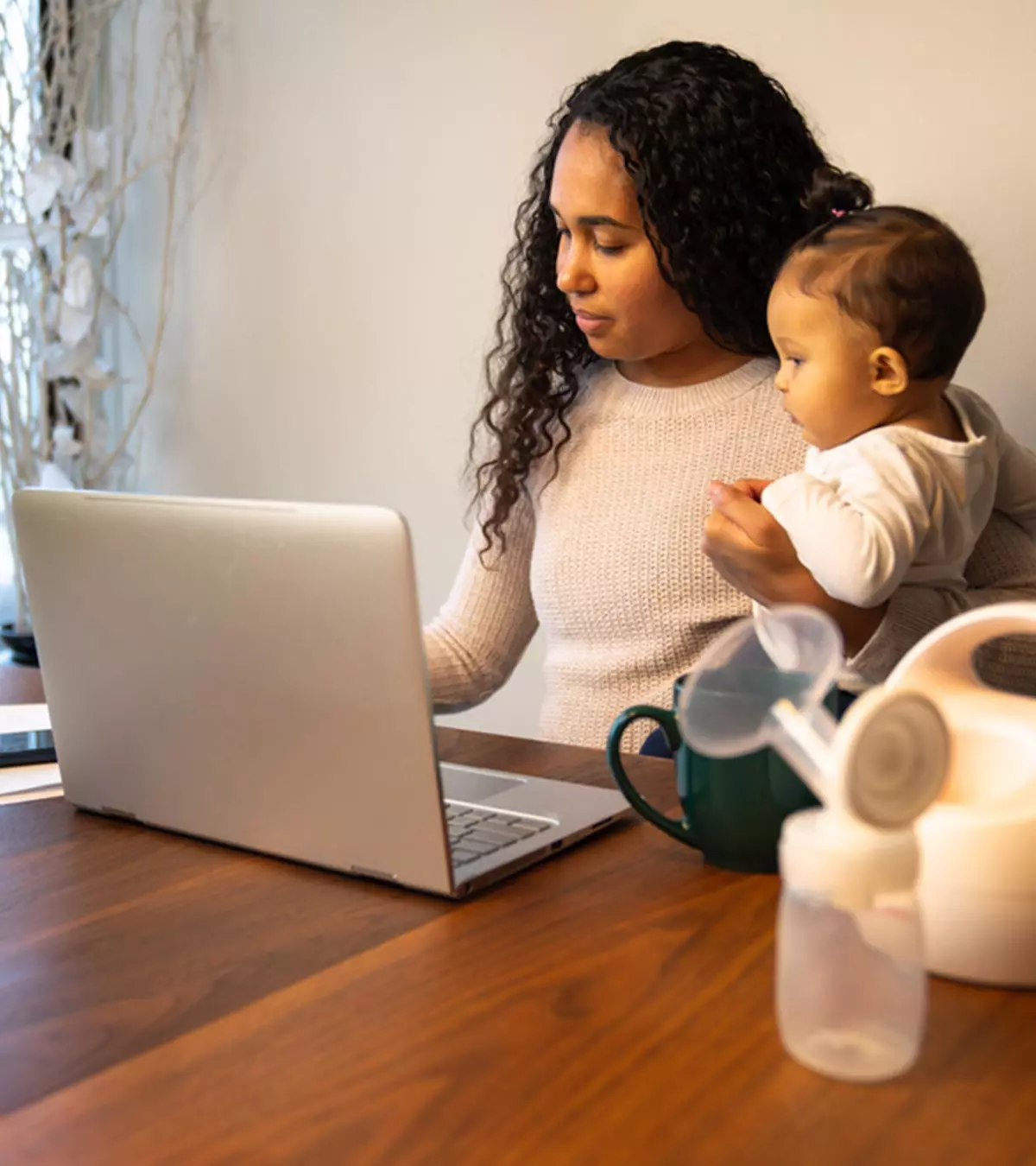
Image: Shutterstock
We often talk about childbirth — the pain and trauma associated with birthing a child, whether it is a normal delivery or a C-section. While childbirth grabs much of the spotlight, and for good reason, not a lot is spoken about the recovery process after birth. Women are often expected to bounce back soon after the child is born. They’re expected to take care of themselves, their newborn baby, as well as the household chores as it is assumed that the worst is over with childbirth.
But the truth is that a female body goes through a lot of changes and associated trauma in the nine months leading up to the moment of childbirth. From nausea, vomiting and recurring illnesses to muscle and back pain (to name just a few!) mothers have to brave it all. As such the body can’t go back to normal in just a few weeks after childbirth. It requires care and some much-needed time to recover. Here, we will address why it takes time for women to recover after delivery and what you can expect during postpartum recovery.
1. Why Does Recovery Take So Long?

Image: Shutterstock
Picture this: you nick the tip of your finger, probably deep enough for it to look like a paper cut. How long will it be before the paper cut heals? Ideally, it should take around a day or two. We’re talking about something as small as a paper cut. Now, can you imagine how long it would take for a woman to heal after her belly has expanded to the size of a watermelon, her nether regions have grown to up to ten centimeters (and probably torn in the process), or her tummy has been surgically cut to remove a little human baby? Add to this mix swollen ankles and feet from all that pressure of carrying a child, bodily changes due to pregnancy hormones, and engorged breasts because the baby needs food. Traumatic, to say the least!
Recovery during postpartum takes time because your body has been through severe trauma. Recovery after childbirth can be as much emotional as it is physical. On average, postpartum recovery takes around six to eight weeks; however, there may be cases where you heal faster or later than normal, which is also okay. Your recovery period takes longer if you’ve had complications during or after delivery (1) Pregnancy is not the only time your hormones are raging — you will experience the same during postpartum. All of this can get overwhelming, but remember to go easy on yourself — your body doesn’t speak your language; it knows nothing about timelines! So cut yourself some slack and for Optimizing Postpartum Carecus on just taking care of yourself and your little one.
2. What To Expect During Postpartum Recovery?

Image: Shutterstock
The road to healing is not the same for everyone. During postpartum recovery, you may experience a few things that other women may not face, but don’t freak out! Here’s a bunch of common things that you may experience during postpartum recovery:
3. Pain In Your Abdomen

Image: Shutterstock
During pregnancy, your uterus expands. This has to go back to its normal size after childbirth, and this shrinking back to normal can cause abdominal pain. Commonly known as afterpains, you will observe that they increase as you breastfeed. This is because the act of breastfeeding releases certain hormones that cause your uterus to shrink back to its normal size (2).
4. You May Be Constipated

Image: Shutterstock
Women often complain of constipation after delivery, and this could be due to various reasons. For one, it may be due to medications that you have to use to relieve pain. These medications can affect bowel movements, thereby causing constipation. Or, it could be because of the kind of anesthesia that was administered to you during delivery. At times, constipation is known to be triggered due to fear and anxiety too (3) .
In some cases, women might have to undergo an episiotomy, where the perineum is cut so that the baby can exit easily. Your lady parts may have got torn at places that would have required stitches. Women often fear that the passing of bowel movements can cause more pain or even damage the stitches. This fear alone can cause constipation. Ask your doctor for a suppository or laxative that can relieve constipation (4) .
5. Baby Blues

Image: Shutterstock
If you’re experiencing unexplained sadness a few weeks after childbirth, you may be going through what is known as the baby blues. The first thing you need to know is that you’re not alone in this. It is common, and it’s not just you. One moment you will be feeling joyful and happy, and the next minute you may feel like crying. Your appetite may take a hit, and you may feel irritable and annoyed. Baby blues are caused due to hormonal changes, and it’s going to be okay! Having said that, baby blues are not the same as postpartum depression. The latter is more severe and needs intervention. Know that you can reach out for help, and you can get out of this phase with the right interventions..
6. You’ve Developed Hemorrhoids

Image: Shutterstock
Hemorrhoids are essentially the swelling of the veins in your rectum. It can happen if you’ve been constipated during pregnancy or if you’ve struggled with pushing your baby during childbirth. Whatever be the case, hemorrhoids are a common part of postpartum, and they are characterized by pain or itching during bowel movements, and sometimes, bleeding (5).
7. Breast And Nipple Soreness

Image: Shutterstock
Lactation can cause your breasts to become sore and enlarged. Similarly, breastfeeding can cause your nipples to feel sore or even crack. Some women may also experience mastitis, which is a bacterial infection of their nipples. To help with breast and nipple soreness, you can use over-the-counter creams and gels. Antibiotics prescribed by your doctor can help with mastitis.
As seen from above, the impact of pregnancy and childbirth on the mother’s body is significant. And it would not go back to its earlier normal state in a few days, weeks, or even months. Postpartum recovery should be given ample time. Your body has been through a lot, so give it some time to heal. Do your part to aid the recovery process by eating well, taking plenty of rest, and maybe even doing some light exercise. What are your thoughts on this? Let us know in the comments below!
References
- Optimizing Postpartum Care
https://www.acog.org/clinical/clinical-guidance/committee-opinion/articles/2018/05/optimizing-postpartum-care - Changes in uterine size after vaginal delivery and cesarean section determined by vaginal sonography in the puerperium
https://pubmed.ncbi.nlm.nih.gov/10728621/ - Constipation in pregnancy: prevalence
symptoms - Pregnancy-related constipation
https://pubmed.ncbi.nlm.nih.gov/15341717/ - Haemorrhoids during pregnancy
https://pubmed.ncbi.nlm.nih.gov/20373920/
Community Experiences
Join the conversation and become a part of our nurturing community! Share your stories, experiences, and insights to connect with fellow parents.












